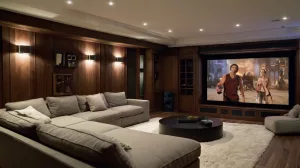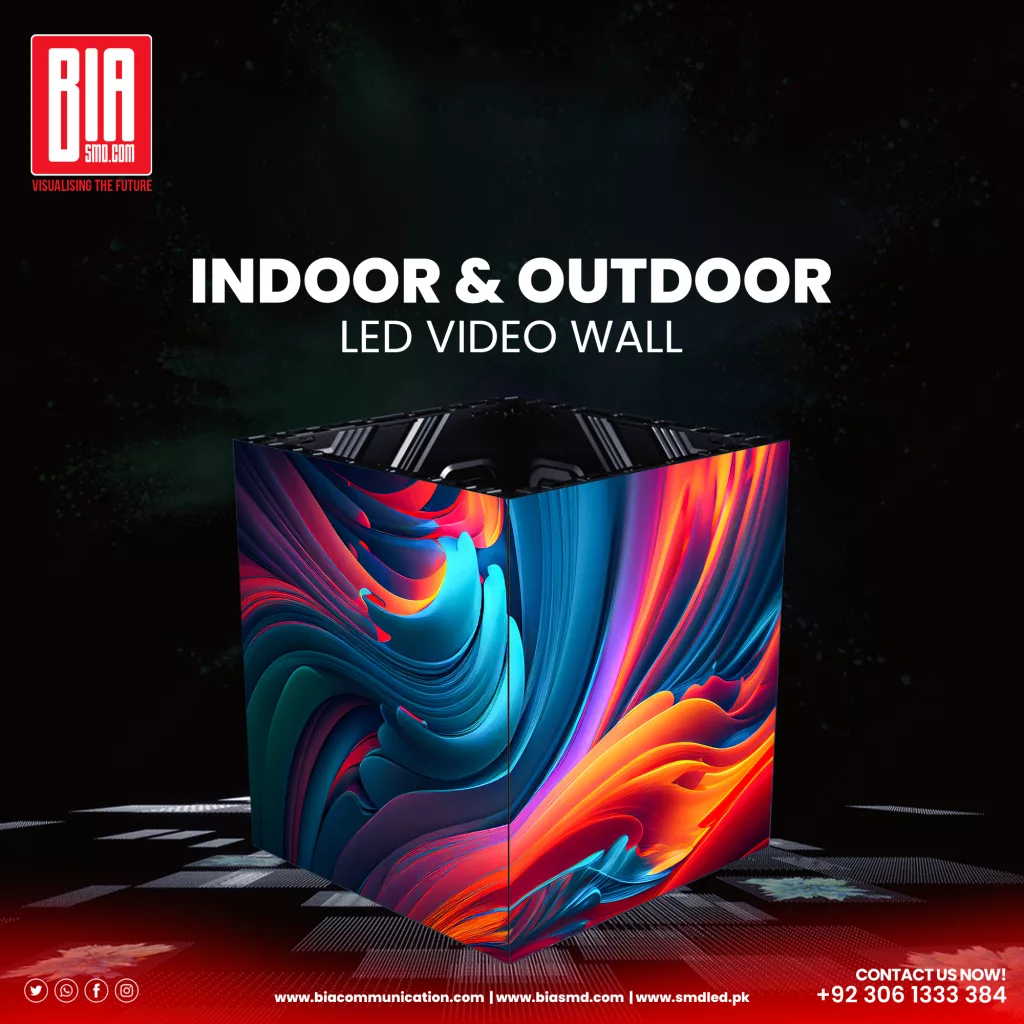10 Best SMD Screens for Home Theaters in 2024

Introduction
Welcome to the world of home theaters, where the cinematic experience is brought right into your living room. Whether you’re a movie buff or a gaming enthusiast, the quality of your screen can make or break your home theater setup. One of the most popular and high-performing options on the market today are SMD screens. But why are they the best choice for home theaters?
What are SMD Screens?
Definition and Overview
SMD stands for Surface-Mounted Device. In the context of display technology, SMD screens use light-emitting diodes (LEDs) that are surface-mounted on a printed circuit board. This technology allows for incredibly thin and lightweight screens with superior image quality.
Benefits of SMD Technology
SMD screens offer several benefits over traditional display technologies. They provide excellent brightness, high contrast ratios, and vibrant colors. Additionally, they have faster response times and are more energy-efficient. These features make them ideal for high-quality home theater setups.
Factors to Consider When Choosing SMD Screens for Home Theaters
Screen Size and Viewing Distance
The size of your screen should correspond to the size of your room and the distance from which you will be viewing it. Larger screens are better for bigger rooms, while smaller screens may suffice for more compact spaces.
Resolution and Image Quality
Resolution is key to image quality. For the best experience, look for screens with at least 4K resolution. Higher resolution screens will provide sharper and more detailed images.
Brightness and Contrast Ratio
A high brightness level ensures that your screen will be viewable in various lighting conditions. Contrast ratio is equally important as it affects the depth and richness of the images displayed.
Refresh Rate and Response Time
A higher refresh rate (120Hz or more) is essential for smooth motion in fast-paced scenes, while a low response time reduces motion blur and ghosting, providing a clearer picture.
Installation and Space Requirements
Consider the space available in your home theater and the ease of installation for the screen. Some screens might require professional installation, while others can be mounted with relative ease.
Top 10 SMD Screens for Home Theaters in 2024
Selecting the best SMD screen for your home theater can be overwhelming with so many options available. Here’s a detailed look at the top 10 SMD screens for home theaters in 2024, chosen based on their performance, features, and customer reviews.
1. BIA SMD Screen
Features and Specifications
- Screen Size: Up to 300 inches
- Resolution: 8K
- Brightness: 2500 nits
- Refresh Rate: 120Hz
Pros and Cons
- Pros: Exceptional brightness and clarity, large screen size, versatile installation options
- Cons: High cost, professional installation recommended
2. Samsung The Wall Luxury
Features and Specifications
- Screen Size: Up to 292 inches
- Resolution: MicroLED 8K
- Brightness: 2000 nits
- Refresh Rate: 120Hz
Pros and Cons
- Pros: Exceptional image quality, large screen size, high brightness
- Cons: Expensive, requires professional installation
3. LG MAGNIT
Features and Specifications
- Screen Size: 136 inches
- Resolution: MicroLED 4K
- Brightness: 1500 nits
- Refresh Rate: 120Hz
Pros and Cons
- Pros: Excellent color accuracy, durable design
- Cons: High cost, complex installation
4. Sony Crystal LED
Features and Specifications
- Screen Size: Up to 790 inches
- Resolution: MicroLED 16K
- Brightness: 1000 nits
- Refresh Rate: 120Hz
Pros and Cons
- Pros: Unmatched resolution, immersive experience
- Cons: Extremely expensive, large space requirement
5. ViewSonic LD163-181
Features and Specifications
- Screen Size: 163 inches
- Resolution: 1080p Full HD
- Brightness: 500 nits
- Refresh Rate: 60Hz
Pros and Cons
- Pros: Affordable, good image quality
- Cons: Lower brightness, limited resolution
6. Absenicon C110
Features and Specifications
- Screen Size: 110 inches
- Resolution: 4K
- Brightness: 700 nits
- Refresh Rate: 60Hz
Pros and Cons
- Pros: Compact size, easy installation
- Cons: Moderate brightness, mid-range price
7. Barco XT Series
Features and Specifications
- Screen Size: 137 inches
- Resolution: 4K
- Brightness: 800 nits
- Refresh Rate: 60Hz
Pros and Cons
- Pros: High durability, great image quality
- Cons: Expensive, professional installation needed
8. Planar TVF Series
Features and Specifications
- Screen Size: Various sizes
- Resolution: 4K
- Brightness: 1000 nits
- Refresh Rate: 60Hz
Pros and Cons
- Pros: Versatile size options, high brightness
- Cons: Higher price point, installation complexity
9. Leyard TVF Series
Features and Specifications
- Screen Size: Various sizes
- Resolution: 4K
- Brightness: 1200 nits
- Refresh Rate: 60Hz
Pros and Cons
- Pros: High brightness, modular design
- Cons: Expensive, requires careful installation
10. Optoma FHDQ163
Features and Specifications
- Screen Size: 163 inches
- Resolution: 1080p Full HD
- Brightness: 600 nits
- Refresh Rate: 60Hz
Pros and Cons
- Pros: Affordable, decent image quality
- Cons: Lower resolution, moderate brightness
Conclusion
In summary, the world of SMD screens offers a variety of options to enhance your home theater experience. From the ultra-luxurious BIA SMD Screen to the versatile and high-performing Nationstar Series, there’s a perfect screen for every home theater enthusiast. When choosing your SMD screen, consider factors like size, resolution, brightness, and installation requirements to find the best fit for your space and needs.
FAQs
What is the difference between SMD and traditional LED screens?
SMD screens use surface-mounted LEDs, which allow for thinner and lighter designs with better image quality compared to traditional LED screens that use larger, through-hole LEDs.
How do I install an SMD screen in my home theater?
Installation varies by model. Some screens require professional installation due to their size and complexity, while others can be mounted with basic tools and instructions.
What maintenance is required for SMD screens?
Regular cleaning of the screen surface and occasional calibration are typically needed to maintain optimal performance.
Are SMD screens energy efficient?
Yes, SMD screens are generally more energy-efficient than other types of displays, making them a cost-effective choice for long-term use.
Can SMD screens be used for outdoor home theaters?
Yes, BIA SMD screens are designed for outdoor use and are built to withstand various weather conditions. Check the specifications to ensure outdoor compatibility.
Best SMD Screens For Home Theaters By SMDLED.PK
Transform your home theater experience with the cutting-edge SMD screens from SMDLED.PK. Our state-of-the-art screens provide unparalleled picture clarity and vibrant colors, ensuring that every movie night is an immersive visual adventure. Designed for easy installation and superior performance, our SMD screens are the perfect addition to any home theater setup. Whether you’re a film enthusiast or a casual viewer, elevate your viewing pleasure and bring the cinema experience to your living room with the unmatched quality and reliability of SMDLED.PK’s SMD screens. Don’t miss out on this opportunity to enhance your entertainment space—choose SMDLED.PK today!

